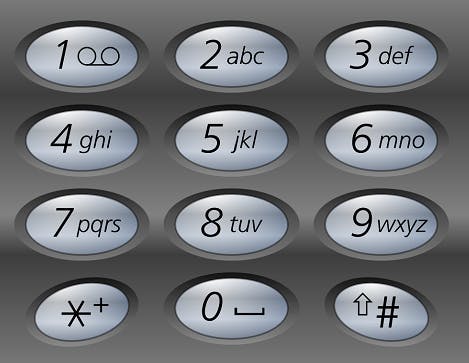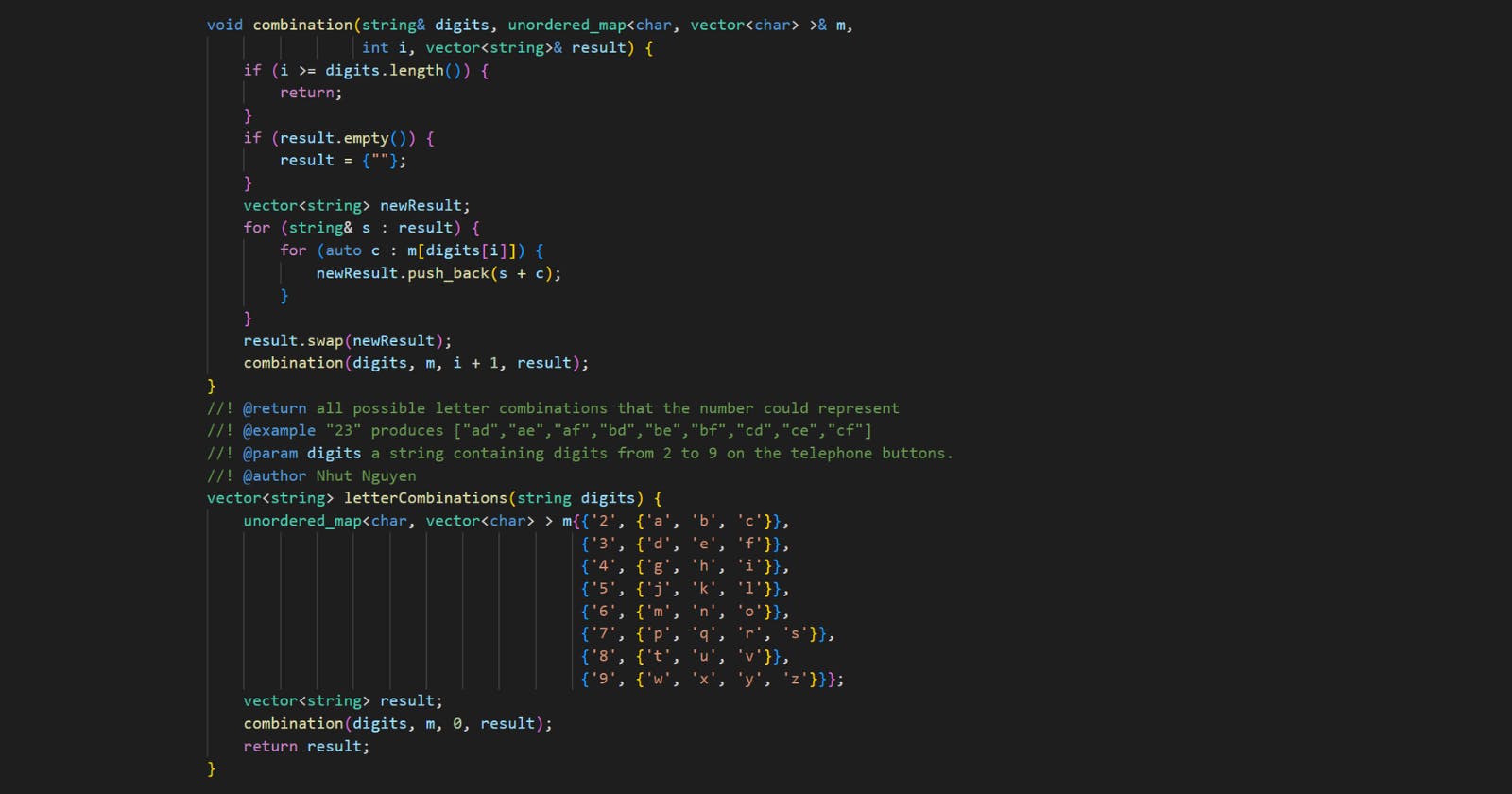Problem statement
Given a string containing digits from 2-9 inclusive, return all possible letter combinations that the number could represent. Return the answer in any order.
A mapping of digits to letters (just like on the telephone buttons) is given below. Note that 1 does not map to any letters.

Example 1
Input: digits = "23"
Output: ["ad","ae","af","bd","be","bf","cd","ce","cf"]
Example 2
Input: digits = ""
Output: []
Example 3
Input: digits = "2"
Output: ["a","b","c"]
Constraints
0 <= digits.length <= 4.digits[i]is a digit in the range['2', '9'].
Solution: Recursive
If you know the combinations result of a string digits, what is the result of extending it one more digit?
Answer: The new result is constructed by adding each letter of the mapping of the new digit to each string of the result.
Example 1 and 3
Assume you have computed the result of digits = "2", which is ["a","b","c"].
To compute the result of digits = "23", you add each letter of the mapping '3' -> {'d', 'e', 'f'} to each string "a", "b", "c".
You get the new result ["ad","ae","af","bd","be","bf","cd","ce","cf"].
Code
#include <vector>
#include <iostream>
#include <unordered_map>
using namespace std;
void combination(string& digits, unordered_map<char, vector<char> >& m,
int i, vector<string>& result) {
if (i >= digits.length()) {
return;
}
if (result.empty()) {
result = {""};
}
vector<string> newResult;
for (string& s : result) {
for (auto c : m[digits[i]]) {
newResult.push_back(s + c);
}
}
result.swap(newResult);
combination(digits, m, i + 1, result);
}
vector<string> letterCombinations(string digits) {
unordered_map<char, vector<char> > m{{'2', {'a', 'b', 'c'}},
{'3', {'d', 'e', 'f'}},
{'4', {'g', 'h', 'i'}},
{'5', {'j', 'k', 'l'}},
{'6', {'m', 'n', 'o'}},
{'7', {'p', 'q', 'r', 's'}},
{'8', {'t', 'u', 'v'}},
{'9', {'w', 'x', 'y', 'z'}}};
vector<string> result;
combination(digits, m, 0, result);
return result;
}
void printResult(vector<string>& result) {
cout << "[";
for (string& s : result) {
cout << s << ",";
}
cout << "]\n";
}
int main() {
vector<string> result = letterCombinations("23");
printResult(result);
result = letterCombinations("");
printResult(result);
result = letterCombinations("2");
printResult(result);
}
Output:
[ad,ae,af,bd,be,bf,cd,ce,cf,]
[]
[a,b,c,]
Complexity
Runtime:
O(3^N), whereN = digits.length. In this problem,Nis very small (N <= 4).Extra space:
O(1)(the small map).
Implementation notes
You can use the assignment operator '=' for result.swap(newResult), i.e. result = newResult.
But this assignment allocates additional memory for a copy of newResult before assigning it to result.
The std::swap() algorithm avoids such copying by using std::move(). It exchanges the contents of each other without allocating additional memory.
References
Thanks for reading. Feel free to share your thought about my content and check out my FREE book “10 Classic Coding Challenges”.

